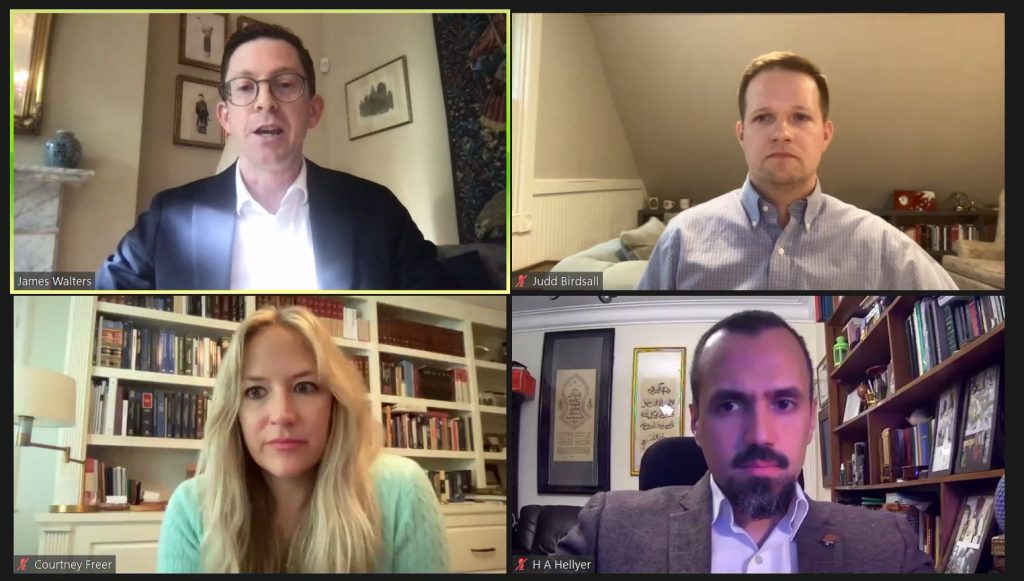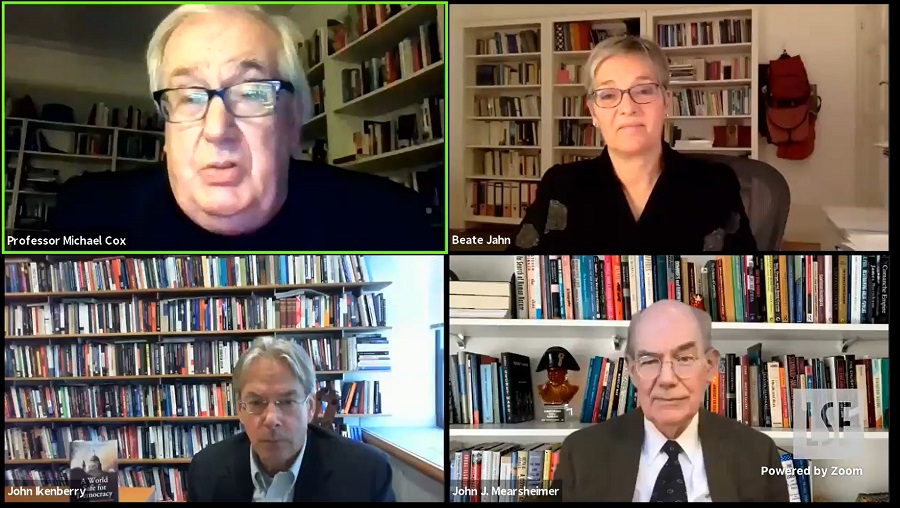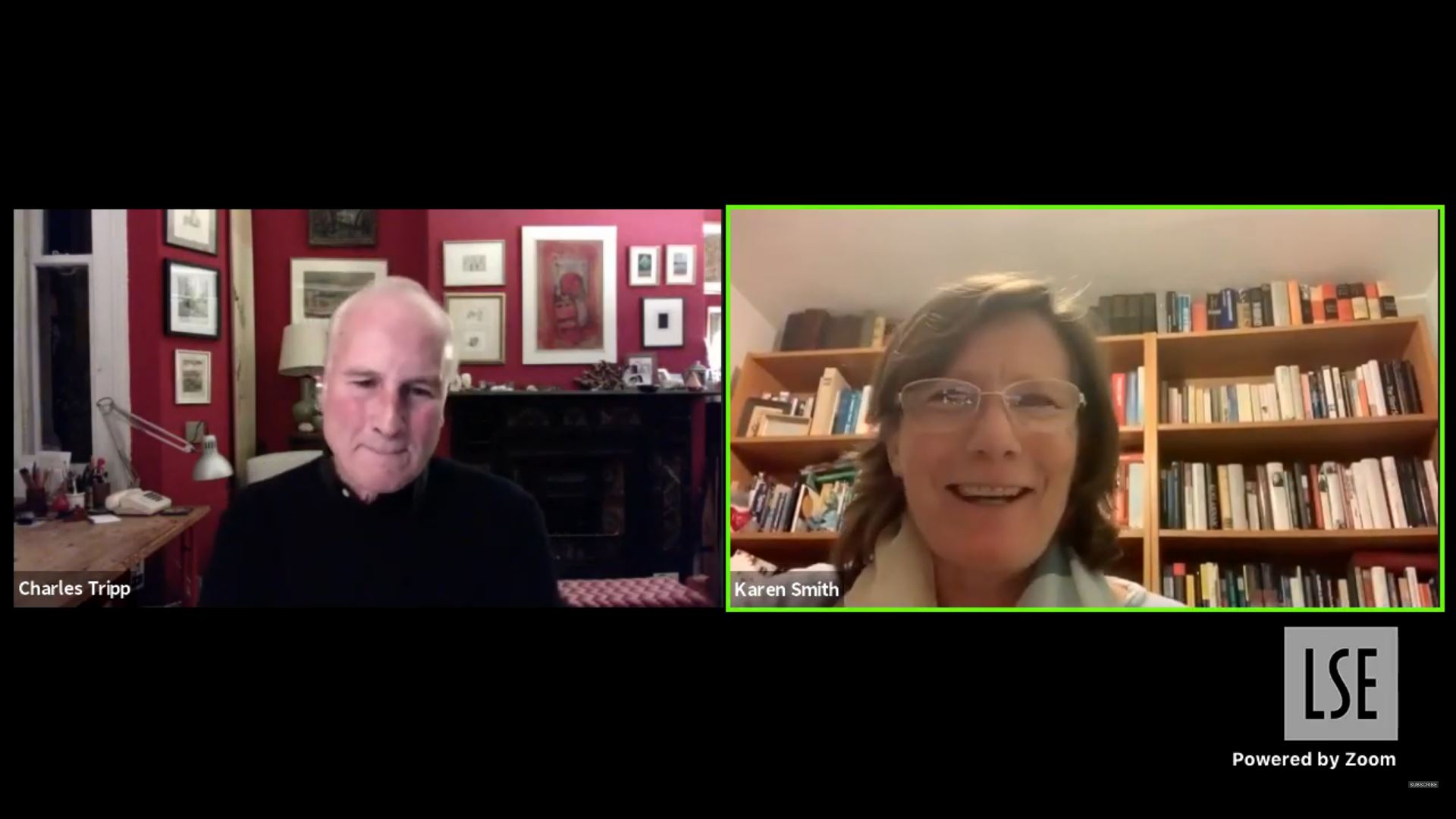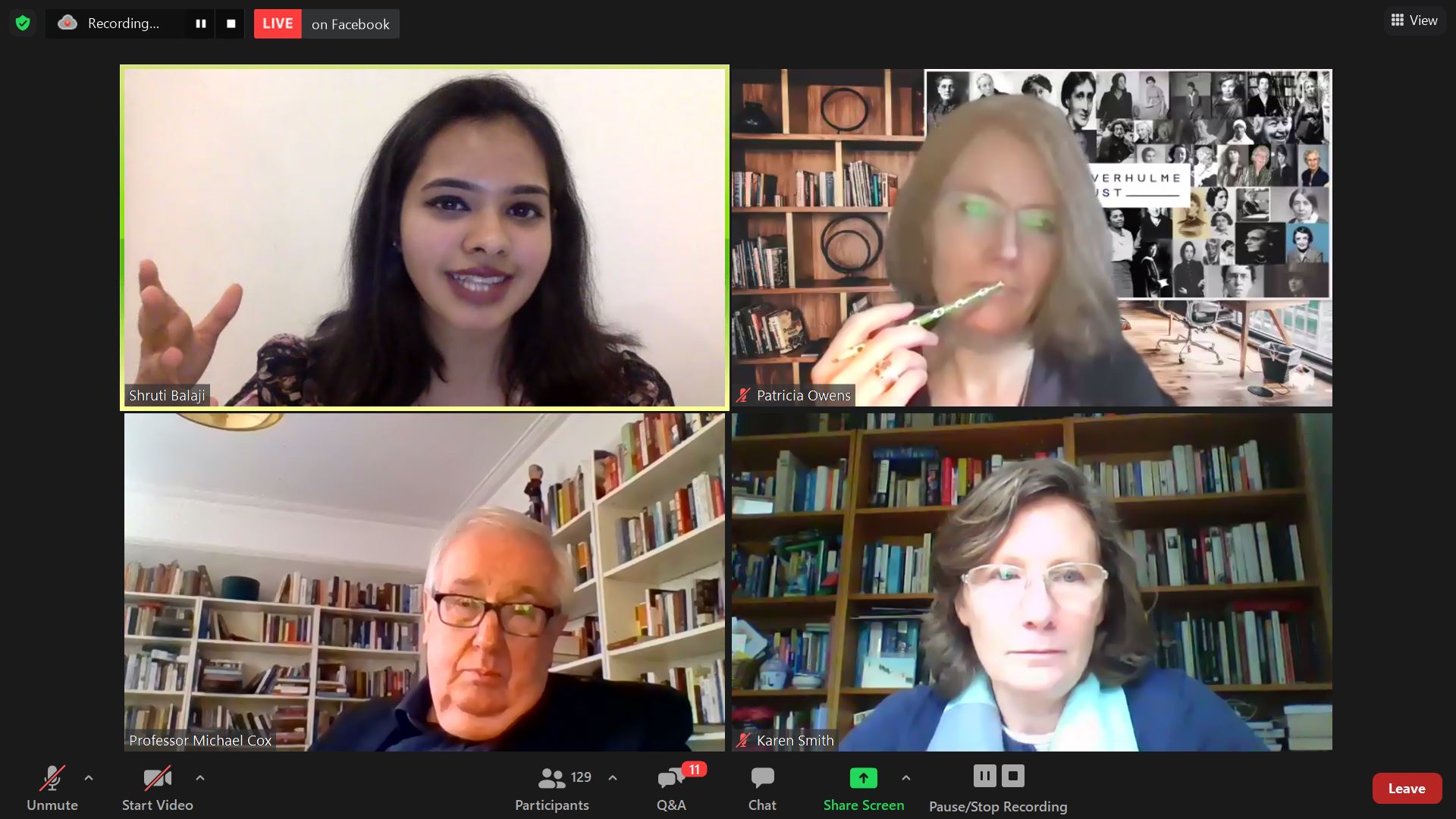On Tuesday 15 June 2021, Dr Judd Birdsall, Dr Courtney Freer and Dr H A Hellyer came together with Dr James Walters to examine the Biden Administration’s approach to international religious freedom and the implications this has on American foreign policy.
- Find out more about the event and speakers
- Listen to or download the audio podcast (90 mins)
- Watch on YouTube (90 mins)
- Read the blog series from Religion and Global Society blog on Religion in the US

Biden has expressed a conceptual departure from his predecessor’s prioritisation of religious freedom over other human liberties. The process of dismantling the hierarchy of human rights is in order. Biden’s challenge going forward, per Dr Birdsall, will be to convincingly show that treating religious freedom as part of a package of human rights – all equal in importance – is not a de-prioritisation of the issue.
Dr Freer spoke on the utility of religion as a political tool, both at home in the United States and abroad. During the Trump years, religious freedom rhetoric primarily addressed a narrow evangelical base. This begs the question, religious freedom for whom? By extension, to what extent does religious freedom cover political freedom as well? A next step for Biden would be to improve the coherence between American domestic and foreign policy by strengthening freedom of religion for religious minorities, particularly within the United States.
While certain western liberal thinkers believe that discussions on international religious freedom only serve to fuel populist rhetoric, the panellists reasoned that there are cases where religion can be a useful lens. Hostilities based on religious affiliation continue to be perpetrated across the world, and should be identified as such.
Dr Hellyer conceded, however, that western solidarity projects can run the risk of exceptionalising certain religious minorities in Muslim-majority countries. There might in fact be a situation where human rights abuses are felt across wider segments of society. This can indeed stoke extremist discourse, of which islamophobic rhetoric is a key part.
Many questions flowed in from the audience, eager to hear more about potential directions in foreign policy. The speakers made clear the deep complexities of the issues at stake and the absence of a universally effective strategy. What is for certain, is that more harm than good can be caused when a misplaced intervention turns religious minority communities into unwanted targets of autocrats in power. As Dr Hellyer remarked – it is always important to consider what will be most useful for those impacted most.
Event report by Kasia Micklem, BSc International Relations and History







1 Comments